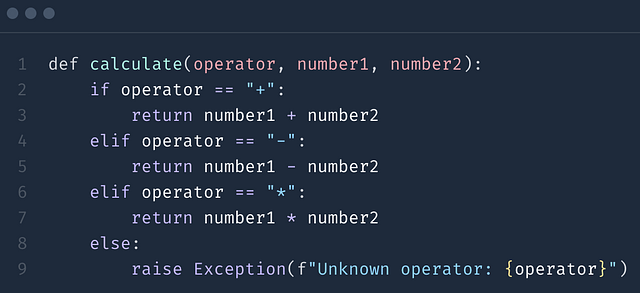Free course for beginners
Python Course
Learning to program is a difficult and time-consuming process. Learning language syntax is the easiest and shortest part of the journey, but that doesn't mean that it's unimportant, it's where you've got to start. This course is about the basics of writing programs in Python. It gives you a springboard so that you can start writing meaningful programs
Where is the Python programming language used?
Python is a powerful and versatile programming language widely used in web development, data analysis, machine learning, automation, cybersecurity, and fintech. Its simple syntax makes it easy to learn, and its high demand in the job market opens doors to careers in leading IT companies. Python allows you to quickly enter the tech industry and grow in various directions, from web application development to artificial intelligence. If you're looking to learn a flexible, in-demand, and future-proof language, Python is an excellent choice

What will you learn in the "Python" course?
You’ll learn the basic syntax of Python — a fundamental skill that enables you to understand other people's code and write your own programs. After the course, you’ll be able to create simple scripts, such as a calculator
Join 74,761 students who have successfully completed courses
Start LearningLearning program
How the training is organised
Convenient format
Practice in the browser
AI assistance without limits
Try a demo lesson without signing up. Practice included
Sorting out the questions
What is studied in the "Python" course and why is it necessary?
In the course, you will learn the basics of Python — one of the most popular and versatile programming languages. You will discover how to work with variables, functions, loops, conditional statements, lists, and dictionaries. This course will help you start programming from scratch, understand the logic of code, learn how to solve problems, and work with real-world examples. It is ideal for both beginners and those who want to structure their knowledge and take the first step in IT.
Why choose Python?
Python is one of the most popular and rapidly developing programming languages in the world, chosen for many reasons. Firstly, it is easy to learn due to its clear syntax, making it great for beginners. Secondly, Python is a versatile language: it is used in web development, automation, data analysis, machine learning, and other fields. Moreover, Python is in high demand in the job market — there are many vacancies and projects using it. The language has a large and active community, providing access to extensive documentation, libraries, and ready-made solutions. Finally, Python is supported at all levels — from educational courses to professional development. If you want to enter IT and learn to write efficient code, Python is an excellent choice
What to do after completing the "Python" course?
After finishing the course, you will have a solid foundation for development in various programming directions. If you plan to advance in your career, we recommend continuing your studies with more advanced courses: ✔️ Python for data analysis or machine learning ✔️ Web development with Python using Django or Flask ✔️ Automation and writing scripts ✔️ Backend development or working with APIs This way, you can build a strong portfolio and prepare for employment.
How is the "Python" course structured?
The course is conducted in an online format: you gain access to pre-recorded lessons with theory, interactive tasks, and tests. All practical assignments are automatically graded directly in the browser. The course is specifically designed for beginners, with simple explanations, step-by-step examples, and feedback.
How does the "Python" course help in a programmer's career?
Python is widely used across various fields — from web development and automation to data analysis, machine learning, and bot creation. By mastering Python, you open the door to many careers: developer, analyst, tester, data scientist. Companies value specialists who know Python for its simplicity, flexibility, and broad ecosystem.
Is a certificate provided at the end of the course?
A certificate is not provided, but you will gain practical knowledge and programming skills in Python. You will learn to write code, understand the logic of tasks, and work with functions, loops, and data structures. These skills are in demand in the job market and will help you with employment or further study.
How quickly can you master Python from scratch?
It depends on your pace and the amount of time you're willing to dedicate. Basic knowledge (variables, conditions, loops, functions) can be acquired in 2–4 weeks with regular study. To confidently solve practical tasks, a bit more time and practice will be required.
What knowledge is needed before starting the course?
No special preparation is required. The course is suitable even for those who have never programmed. If you already know what variables are or have worked with HTML, that’s a plus but not necessary. All topics are explained from scratch and accompanied by examples and practice.
Can you learn Python without knowing other programming languages?
Yes, Python is perfect as a first language. It is intuitive, easy to read, and helps quickly grasp the basics of programming, logical thinking, and algorithms. It's an excellent starting point, even if you have never written code before.
Can Python be used for mobile development?
Python is not the primary language for native mobile development (like Swift or Kotlin), but it can be used to create applications through frameworks like Kivy or BeeWare. Python is more commonly used for developing the backend of mobile applications, automation, and server-side programming.
Sign up and start learning. For free. Forever